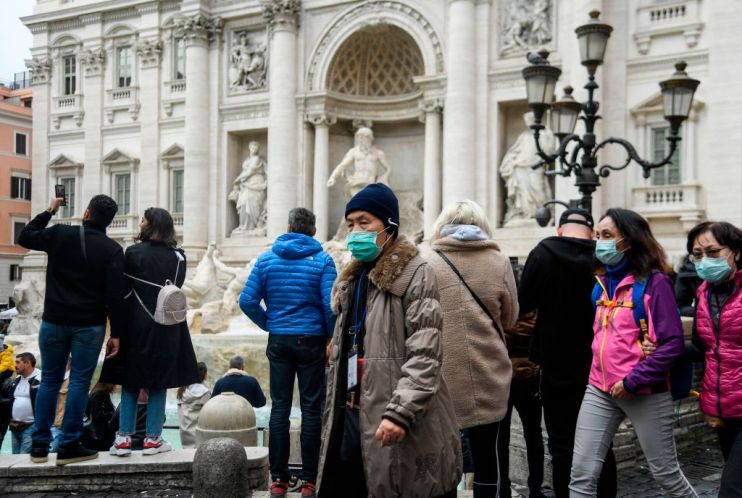Eurozone economy shrinks by record 12 per cent as pandemic bites

The Eurozone economy contracted by a record 12.1 per cent in the second quarter of the year as coronavirus lockdowns caused business activity to shudder to a halt and consumer spending to dry up.
It followed a 3.6 per cent contraction in the first quarter, confirming that the single-currency area is in by far the worst recession since it was created in the 1990s.
The Italian, French and Spanish economies each suffered their worst quarters on record after imposing some of the strictest restrictions around the world.
Spain’s economy fared the worst of the bunch, contracting 18.5 per cent quarter on quarter. It followed a 5.2 per cent drop in the previous quarter and was much worse than the 16.1 per cent contraction analysts had expected.
Italy suffered a fall in GDP of 17.3 per cent after a drop of 5.4 per cent in the first quarter. It was better than expected, however.
The French economy – the biggest of the three – contracted by a post-war record of 13.8 per cent. That drop was also better than expectations.
Europe quickly became one of the global centres of the coronavirus pandemic in the spring. Cases and deaths varied sharply from country to country, however, allowing different approaches to lockdowns.
Lithuania, Latvia and the Czech Republic fared relatively well. Their economies shrank by between five and eight per cent in the second quarter.
Coronavirus threatens Eurozone economy’s recovery
The coronavirus restrictions battered businesses and confined people to their homes, causing spending to plunge at a record rate. Today’s individual country GDP figures are far worse than anything seen since at least the Second World War.
Germany yesterday reported that its GDP dropped 10.1 per cent in the second quarter. That too was the worst performance since comparable records began.
Now, questions loom over the continent’s economic recovery as cases are on the rise again. Spain has been hit particularly hard, causing concern for its tourism sector.
“Not only has the Spanish economy been one of the worst hit in the Eurozone,” said Jessica Hinds, European economist at Capital Economics. But “it also looks set to make a much weaker recovery than its neighbours”.
“The tourism sector, which was barely getting back on its feet after the closure of borders during the lockdown, has been dealt a fresh blow by the resurgence in virus cases.”
However, the euro has climbed rapidly in the last two weeks after EU leaders agreed a €750bn (£680bn) bailout fund.
The hardest-hit countries will receive €390bn between them in the form of grants. And the rest will be loaned out.